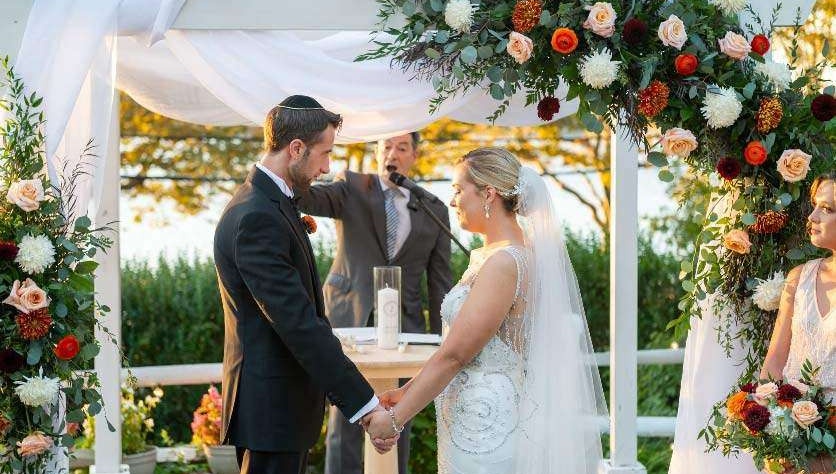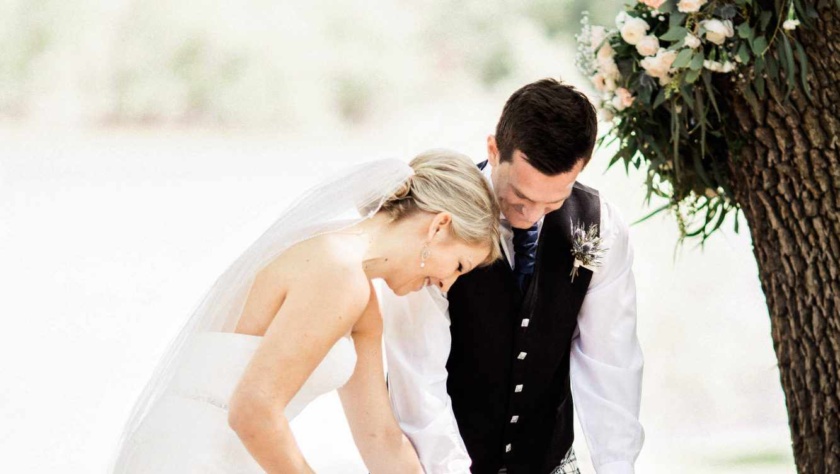The Role of a Rabbi in an Interfaith Wedding: Understanding the Importance of Jewish Traditions
In An Interfaith wedding, couples from different faiths and backgrounds marry. These marriages are evolving and becoming more common in today’s fast-paced society. An interfaith wedding combines different cultures, rituals, and religions, forming a unique environment for celebrating love.
For Jewish partner weddings and non-Jewish partners, a Rabbi’s existence can be very significant. The Rabbi bridges spiritual differences, offers guidance, and ensures Jewish customs are celebrated during the ceremony. In this blog, we will discuss the significant role of a Rabbi in interfaith weddings, understand the importance of Jewish traditions, and discuss how their involvement adds depth to this meaningful occasion.
The Significance of Jewish Traditions in an Interfaith Wedding
Jewish marriages are performed with age-old rituals that link couples to a rich heritage. From signing the ketubah to breaking the glass, these rituals celebrate the divinity of the wedding. Regardless, when one partner is not Jewish, then including these rituals can be overwhelming. That is where a Rabbi comes in to help.
Understanding the Role of the Rabbi
A Rabbi is known as more than just a spiritual leader. They are also instructors and guides who ensure Jewish rituals are correctly executed. In interfaith weddings, the Rabbi works as a mediator, helping the partners celebrate both spiritual rituals. The Rabbi’s role depends on the couple’s requirements, but typically, the Rabbi guides the couple in creating a memorable wedding ceremony that recalls both backgrounds.
The Rabbi leads the wedding and offers guidance on including non-Jewish rituals in Weddings. For example, they might advise including family traditions or symbols of unity, such as a candle-lighting ceremony, alongside Jewish customs. Finally, the Rabbi seeks to perform a Jewish wedding while admiring both partners’ uniqueness and families.
Creating a Respectful and Inclusive Ceremony
One of the most important aspects of an interfaith marriage is making both families feel welcome and included in the wedding. This means striking a perfect balance between Jewish rituals and non-Jewish partners’ rituals. A Rabbi plays an important part in boosting this balance.
A Rabbi may agree to a double-ceremony system, where both Jewish and non-Jewish customs are proposed in a manner that appreciates the core sentiments of both religions. The Rabbi also involves other spiritual leaders, like a priest, minister, or imam, to make sure that both families feel designated. This inclusion can help fill the gap between different religions.
The Importance of Jewish Traditions in Marriage
For Jewish partners, celebrating traditions during the wedding is essential for purifying their wedding and showing dedication to their religion. The key ritual of Jewish tradition is the chuppah, which represents the house they will make together. The ketubah is a written marriage agreement tracing commitments, and the breaking of the glass highlights the temple’s destruction and reminds the couple to adore each other in all possibilities.
Understanding these rituals can improve the experience for a non-Jewish person and connect them to their Jewish partner’s estate. A Rabbi can explain the meaning behind every tradition, ensuring that both partners feel involved and obedient during the wedding.
The Rabbi’s Guidance on Jewish Laws
Jewish law has some specific guidelines regarding marriage. According to orthodox Jewish law, for a wedding to be recognized as Jewish, both spouses must be Jewish. Regardless, in the case of an interfaith wedding, multiple Rabbis take a more inclusive process, concentrating on the couple’s wish to make a life together while celebrating Jewish values.
A Rabbi probably provides guidance on how the partners can follow these laws, especially if the non-Jewish partner is open to conversion. In some cases, the Rabbi might even guide the non-Jewish partner through the conversion procedure, which would allow them to completely experience Jewish rituals. Then, they can create a wedding that aligns with orthodox Jewish law.
The Emotional and Spiritual Support of a Rabbi
The wedding day is a profoundly emotional occasion for partners and their families, and interfaith partners probably experience extra stress from combining different cultures and faiths. A Rabbi’s role goes beyond officiating the wedding; they also offer religious and emotional support.
Premarital counseling led by a Rabbi can be very beneficial for interfaith couples. It guides them through complicated problems such as spiritual differences, family dynamics, and growing children in a multifaith family. The Rabbi assists the couple in finding a common base and offers meanings to maintain a lasting, loving, and respectful marriage.
The Rabbi’s Impact on the Couple’s Future Family
Parenting children in an interfaith house can be difficult, but a Rabbi can guide couples in making these crucial decisions. They usually suggest celebrating Jewish holidays and achievements such as Bar and Bat Mitzvahs while admiring the non-Jewish partner’s rituals.
A Rabbi creates an environment that supports the couple’s forthcoming children’s adoption of both cultures of their parents. If the couple decides to raise their children in the Jewish faith, the Rabbi can offer ongoing support throughout the entire procedure.
Conclusion
In conclusion, a Rabbi plays a significant part in interfaith weddings by blending faiths and ensuring Jewish customs are celebrated. A Rabbi provides guidance and support, helping partners understand each other’s religion. Including a rabbi enables a memorable wedding day and begins a robust foundation for growing children in a loving, inclusive atmosphere.
FAQS for The Role of a Rabbi in an Interfaith Wedding: Understanding the Importance of Jewish Traditions
Question 1. Can a Rabbi officiate a wedding if one spouse is not Jewish?
Answer. Yes, multiple Rabbis are open to officiating interfaith weddings. They concentrate on the partners’ wish to make a life together while celebrating Jewish values, and they usually guide paths to include elements from both partners’ faiths.
Question 2. What if the non-Jewish partner is interested in conversion for a wedding?
Answer: If the non-Jewish partner is unrestricted to conversion, a Rabbi may guide them through the procedure. This would allow the non-Jewish partner to adopt Jewish customs and faiths, ultimately creating a marriage that aligns more closely with Jewish law.
Question 3. What are the key Jewish rituals performed in an interfaith wedding?
Answer: Common Jewish wedding rituals include the ketubah signing, chuppah, Seven Blessings, and glass breaking.



